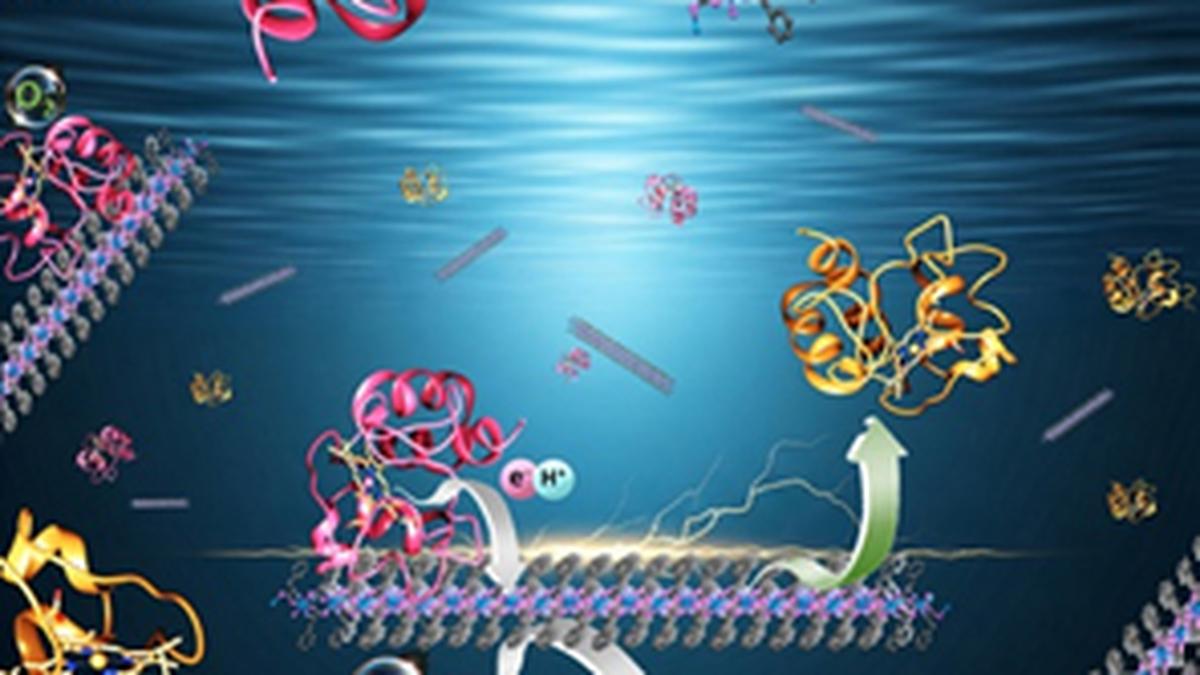Dr Amit Vernekar and his PhD student Adarsh Fatrekar at CSIR-CLRI, Chennai, have created a next-gen nanozyme called Cu-Phen. This new type of artificial enzyme, a metallo-nanozyme, can precisely control electron transfer, which is essential for energy generation in cells. The breakthrough could support advances in medicine, sustainable energy, and environmental technologies.
It is carefully engineered using copper ions and the amino acid phenylalanine to mimic natural enzymes more closely.
Regular nanozymes often have poorly defined active sites, leading to uncontrolled electron flow. This can create harmful byproducts and interfere with cell function.
Cu-Phen interacts with cytochrome c, a key protein in the cell’s energy pathway, enabling precise and safe electron transfer — just like in natural systems. It also reduces oxygen to water efficiently, avoiding harmful byproducts like reactive oxygen species (ROS), which can damage cells. This makes it safer and more effective for biological use.
With its precisely designed structure, Cu-Phen stands out among nanozymes and points to a promising future for creating smarter, safer artificial enzymes for sustainable energy and health solutions.
More Like This
Published on April 20, 2025
Anurag Dhole is a seasoned journalist and content writer with a passion for delivering timely, accurate, and engaging stories. With over 8 years of experience in digital media, she covers a wide range of topics—from breaking news and politics to business insights and cultural trends. Jane's writing style blends clarity with depth, aiming to inform and inspire readers in a fast-paced media landscape. When she’s not chasing stories, she’s likely reading investigative features or exploring local cafés for her next writing spot.






